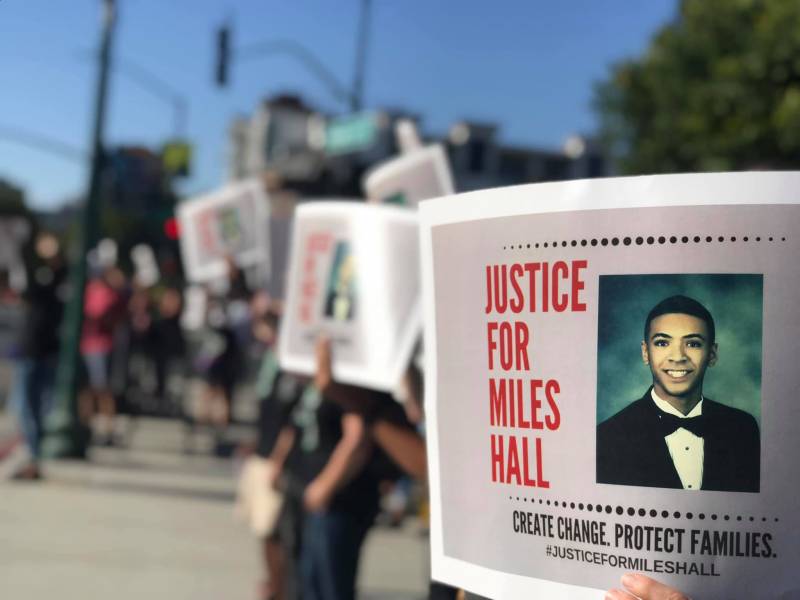Contra Costa District Attorney Diana Becton released a long-awaited report Friday finding that two Walnut Creek police officers were legally justified when they fatally shot Miles Hall in 2019.
"The evidence shows that Officers Murphy and Hsiao acted in what each of them actually and reasonably believed to be self-defense and defense of others," the report said. "The examined evidence does not support the contention that the shooting of Hall was criminal."
Hall's mother, Taun Hall, criticized the decision in a written statement.
“After nearly two long years of waiting anxiously for the conclusion of what we had hoped would be a thorough, unbiased, factually accurate investigation, we learned that there will be no justice and no accountability for the indefensible actions that resulted in our son’s death — at least not today," she said.
Miles Hall, a 23-year-old Black man in the middle of a mental health crisis, was shot and killed by officers Melissa Murphy and Kuang Hsaio as he ran toward a group of police while carrying a long, steel digging tool, on June 2, 2019. Hall, who'd been diagnosed with schizoaffective disorder, according to the district attorney's report, had several prior contacts with police in similar circumstances.
